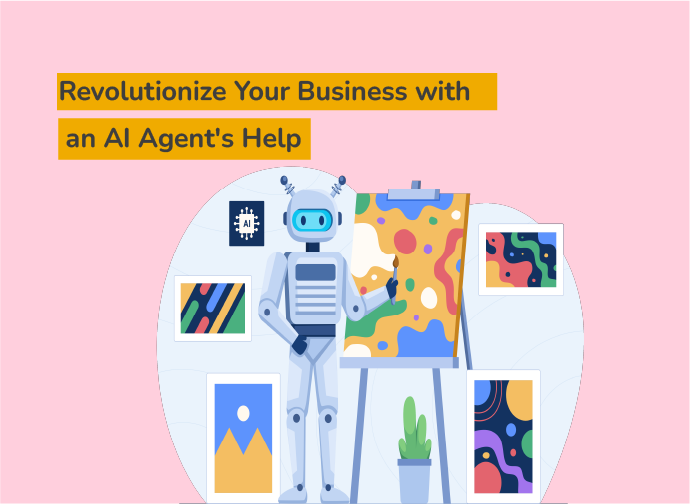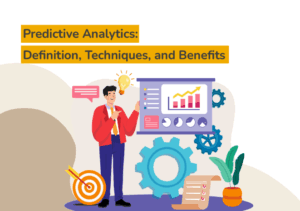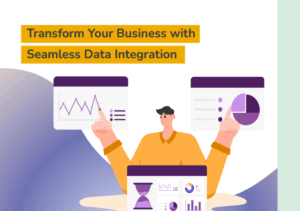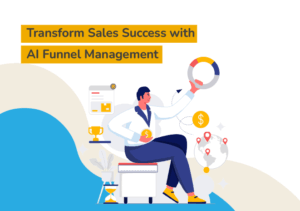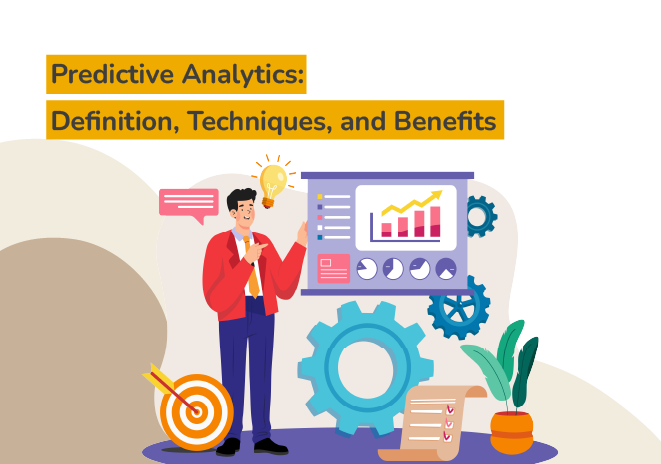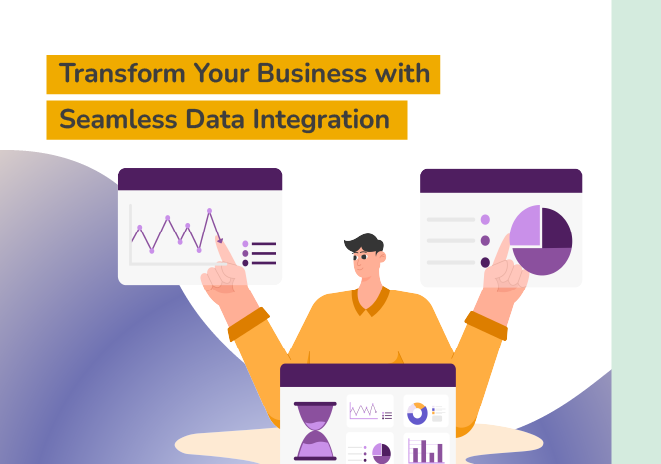What is an AI Agent?
An AI Agent is a technology-driven entity designed to perform tasks that typically require human intelligence. These sophisticated systems can process data, recognize patterns, learn from experiences, and make decisions based on predefined criteria. They operate autonomously or semi-autonomously, allowing for seamless integration with existing business processes. By leveraging machine learning and natural language processing, AI agents can handle a wide range of functions, from customer service to data analysis. Understanding the capabilities and functionalities of AI agents is crucial for businesses aiming to enhance operational efficiency and innovation. This knowledge is the first step towards a strategic implementation of AI in modern enterprises.
Key Takeaways
- An AI Agent is a technology-driven entity that performs tasks requiring human intelligence through autonomous or semi-autonomous operations.
- AI Agents work by using advanced algorithms and machine learning to process data and provide solutions.
- Key features of AI agents include automation, data analysis, adaptability, scalability, and integrating with existing systems.
- AI Agents can streamline operations, boost productivity, enhance customer service, and support modernization.
- AI Agents improve customer service with 24/7 support and personalized solutions, using natural language processing.
- Key challenges in implementing AI Agents include technical complexity, ethical concerns, and potential employee resistance.
- Choosing the right AI Agent involves evaluating compatibility, scalability, industry needs, data privacy, and cost requirements.
- Future innovations in AI Agents will enhance natural language processing, prediction accuracy, and expand automation possibilities.
How do AI Agents work?
AI Agents function by utilizing advanced
algorithms and
machine learning techniques to process data and perform tasks that traditionally require human intelligence. These agents work autonomously or semi-autonomously, harnessing
natural language processing to understand and interact with human-like precision. By integrating data from diverse sources, AI Agents analyze patterns, predict outcomes, and provide personalized solutions. The underlying architecture often involves a combination of
neural networks and
deep learning models to enable continuous learning and improvement over time. Real-time data processing allows AI Agents to adapt dynamically to changing conditions, thereby offering tailored responses and insights that enhance decision-making efficiency within a business environment.
- Utilize advanced algorithms
- Employ machine learning techniques
- Integration of data sources
- Analyze patterns and predict outcomes
- Provide personalized solutions
What are the key features of AI Agents?
AI agents are reshaping the business landscape with their exceptional capabilities. Key features include
automation,
data analysis, and the ability to
learn and
adapt over time. Automation helps streamline repetitive tasks, increasing {efficiency} and reducing human error. Meanwhile, data analysis enables smarter decision-making by providing insights from vast datasets. AI agents can also
interact intelligently with customers, enhancing service and satisfaction. A critical aspect is their
scalability, allowing businesses to expand operations without additional resources. Moreover, their
integration with existing systems facilitates a seamless adoption, making them indispensable in today’s digital era.
Why Should Businesses Consider Using AI Agents?
As businesses navigate the digital landscape, incorporating
AI Agents can be a game-changer. These intelligent systems streamline operations,
boost productivity, and enhance customer interaction. By automating repetitive tasks, AI Agents free up human resources for strategic initiatives. They analyze vast datasets to provide insights, thus significantly improving decision-making processes. The implementation of AI Agents also ensures consistency in service, which elevates overall
customer satisfaction. Moreover, these agents work tirelessly, offering businesses round-the-clock operational efficiency. With potential cost reductions and improved service delivery, integrating AI Agents is a strategic move towards
modernization and growth.
What benefits can AI Agents bring to a business?
AI Agents offer transformative benefits to modern businesses, enhancing productivity and driving growth. By automating repetitive tasks, these intelligent systems can significantly reduce operational costs and free up human resources for more strategic roles. Businesses can leverage AI Agents to deliver 24/7 customer support, ensuring immediate responses to queries, thus improving customer satisfaction and loyalty. Additionally, AI Agents can analyze large datasets swiftly, providing valuable insights that inform strategic decisions. This leads to smarter business strategies and a competitive edge in the marketplace. Their capability to learn and adapt makes them indispensable tools for businesses aiming to innovate and remain agile in today’s fast-paced environment.
| Benefit |
Description |
| Cost Reduction |
Automate tasks, reduce labor hours |
| Improved Customer Service |
24/7 support, faster response times |
| Data Analysis |
Swift insight, better decision making |
| Strategic Advantage |
Informed decisions, competitive market edge |
| Adaptability |
Continuous learning and adaptability |
How do AI Agents enhance business efficiency?
AI Agents enhance business efficiency by streamlining operations and reducing the time spent on repetitive tasks. They employ advanced algorithms to analyze vast amounts of data, providing valuable insights that aid in decision-making. By automating routine processes, AI Agents free up human resources, enabling employees to focus on strategic tasks that drive growth. These agents also facilitate real-time problem-solving, ensuring that businesses can respond swiftly to changing market conditions. Moreover, AI-driven analytics enable precise inventory management and demand forecasting, further optimizing operational efficiency. In essence, AI Agents are pivotal in transforming traditional workflows, making processes smarter and more agile, leading to increased productivity and cost savings.
How Can AI Agents Revolutionize Your Business?
AI Agents hold the potential to dramatically transform your business by automating routine tasks and enhancing customer interactions. These intelligent systems can manage a variety of operations such as scheduling, data entry, and even sophisticated customer queries, allowing employees to focus on strategic initiatives. Moreover, AI Agents seamlessly integrate data analytics into their operations, providing insightful reports that support data-driven decision-making. This leads to significant enhancements in business efficiency and productivity. By adopting AI Agents, companies can create a more responsive service layer, catering to customer needs swiftly and accurately. As AI technology continues to evolve, it offers a competitive edge, enabling businesses to stay ahead and thrive in the ever-changing market landscape.
What tasks can AI Agents automate?
AI Agents can significantly
streamline business operations by automating a variety of repetitive and time-consuming tasks. Common tasks that AI Agents can automate include
data entry, customer interactions through chatbots, and routine decision-making processes. By automating these tasks, businesses can
reduce human error, enhance productivity, and allow employees to focus on more strategic, value-added activities. For example, in the customer service sector, AI Agents can handle FAQs and simple inquiries, ensuring 24/7 availability and faster response times. Additionally, AI Agents contribute to
scalability, allowing businesses to handle a larger volume of operations without a proportional increase in resources.
How do AI Agents improve customer service?
AI agents significantly improve
customer service by providing
24/7 support, ensuring that customer inquiries are addressed promptly and efficiently. They utilize
natural language processing to understand and respond to customer needs, offering personalized and relevant answers. By analyzing vast amounts of customer data, AI agents can anticipate issues and proactively offer
solutions, enhancing customer satisfaction. Additionally, AI agents are capable of handling multiple inquiries simultaneously, reducing wait times and freeing up human staff for more complex tasks. The integration of AI agents not only ensures a consistent quality of service but also boosts
customer loyalty by meeting and exceeding service expectations.
Can AI Agents help in decision-making?
AI Agents are transforming
business decision-making by providing
data-driven insights that help companies identify trends and patterns. These advanced systems can analyze
large datasets quickly, offering recommendations based on real-time information. By processing complex data more efficiently than humans, AI Agents assist in making
informed decisions that can lead to improved outcomes. The integration of AI Agents into decision-making processes allows businesses to reduce bias, enhance
accuracy, and
minimize risks. From financial forecasting to strategic planning, AI Agents empower
leaders with the agility to adapt to changing market conditions with precision and speed, making them invaluable tools in today’s competitive landscape.
What Are the Challenges of Implementing AI Agents?
Integrating
AI agents into your business can revolutionize operations, yet it poses several
challenges. One significant hurdle is the
complexity of implementation, requiring extensive
technical expertise and resources. Additionally, there may be a
lack of understanding among team members about the AI’s functionalities. AI systems can also present
ethical and data privacy concerns. Overcoming these challenges demands a strategic approach, thorough training, and collaboration with
AI specialists. It’s crucial for businesses to anticipate and address potential
resistance from employees unfamiliar with AI technology. By proactively tackling these issues, companies can unlock the full potential of AI agents and sustain their competitive edge in the evolving market.
Are there any limitations with AI Agents?
AI Agents are transforming businesses, but it’s crucial to understand their
limitations. They often rely on vast amounts of data, which can sometimes lead to
privacy concerns. Additionally, AI Agents may struggle with complex tasks requiring
emotional intelligence or human-like
creativity. Furthermore, they can be costly to implement with significant maintenance involved. Understanding these challenges can help businesses develop effective strategies, ensuring that AI Agents complement rather than hinder their operations.
How can businesses overcome AI integration challenges?
Overcoming
AI integration challenges is crucial for businesses aiming to seamlessly incorporate AI Agents into their operations. Successful implementation involves addressing key obstacles such as
data quality,
employee training, and
system compatibility. Organizations should invest in comprehensive training programs that demystify AI technologies for employees, fostering a culture of acceptance and adoption. Collaborating with IT experts to ensure that AI systems align closely with existing infrastructure is vital. Moreover, businesses need to establish clear objectives for their AI initiatives, enabling tailored solutions that fit specific operational needs. By proactively tackling these challenges, companies can maximize the potential of AI Agents, paving the way for innovative growth and efficiency improvements.
How to Choose the Right AI Agent for Your Business?
Selecting the perfect
AI Agent for your business is crucial to harness AI’s full potential. Businesses must consider several factors when making this decision, such as the agent’s
compatibility with existing systems, its
scalability, and the specific needs of your industry. Evaluating the
agent’s ability to adapt and integrate with your processes is essential. Additionally, understanding the subtle nuances and differences between industry-specific AI solutions can significantly impact efficiency and outcomes. By carefully considering these aspects, businesses can ensure they choose an AI agent that aligns with their goals and propels them towards
innovation and
growth.
What factors should be considered while selecting an AI Agent?
Choosing the right
AI Agent is pivotal for businesses aiming to harness the power of artificial intelligence. Key factors to consider include
scalability, ensuring the AI can grow with your business, and
integration capabilities, confirming seamless operation with existing systems. Another vital aspect is
customizability, allowing the AI to be tailored to your business needs. It’s also crucial to evaluate the agent’s
data privacy protocols to safeguard sensitive information. Moreover, consider the
cost-effectiveness of the solution to ensure it aligns with your budget. Finally,
support and training provided by the vendor can significantly influence your decision, ensuring smooth deployment and ongoing success with the AI system.
„When selecting an AI Agent, consider key factors like scalability, integration capability, customizability, data privacy, cost, and support.“
Is there a difference between AI Agents across different industries?
AI agents have become a crucial aspect of modern business operations, but it’s essential to recognize that
differences exist across various industries. An AI agent tailored for healthcare might focus on patient data management and diagnostics, while in the financial sector, it could emphasize risk assessment and fraud detection. These agents are designed to meet specific industry
requirements, enhancing their relevance and effectiveness. However, the core capabilities, such as data processing and task automation, remain consistent. Choosing the right AI agent involves analyzing sector-specific needs and ensuring adaptability and scalability. This approach not only optimizes functionality but also drives
innovative growth across diverse business landscapes.
What Are the Future Trends in AI Agents for Business?
As businesses increasingly turn towards artificial intelligence, understanding the upcoming
trends in
AI agents is crucial for staying ahead. Emerging innovations promise to reshape how businesses operate, with AI agents offering more
automation and smarter decision-making capabilities. From
advanced natural language processing to
improved predictive analytics, the future looks promising. Businesses can anticipate AI agents that are more intuitive and capable of handling complex tasks across diversified sectors. Additionally, the integration of AI with other advanced technologies like
IoT and
blockchain could further enhance operational efficiency. Keeping abreast of these developments will be vital for businesses to thrive in a rapidly evolving landscape.
How is AI evolving in business applications?
Artificial intelligence (AI) is continuously evolving, reshaping the landscape of business applications.
AI agents are now at the forefront, offering groundbreaking solutions that streamline processes and improve overall efficiency. By leveraging
machine learning and
natural language processing, businesses can automate routine tasks, significantly enhancing productivity. Furthermore, AI agents are becoming increasingly adept at
data analysis, enabling companies to make more informed decisions. This evolution allows businesses to not only meet consumer demands swiftly but also anticipate market trends effectively. As AI technology advances, we can expect even more sophisticated tools that offer unparalleled insights and operational advantages.
- AI agents streamline processes
- Increasing efficiency with machine learning
- Natural language processing in automation
- Advanced data analysis capabilities
What innovations can we expect in AI Agents?
AI Agents are at the forefront of technological innovation, significantly altering how businesses operate. One can anticipate advancements in capabilities such as
natural language processing (NLP), accurately interpreting and responding to human queries. Moreover, the integration of
machine learning algorithms will enhance prediction accuracy, allowing for more precise analytics. As AI develops,
agents will become more autonomous, handling complex tasks with minimal human intervention. These innovations will not only optimize operational efficiency but also expand the scope of automation across various industries. As businesses continually seek ways to stay competitive, understanding future trends in AI Agents will be pivotal to harnessing their full potential.
FAQ
What is an AI Agent?
An AI Agent is a technology-driven entity designed to perform tasks that typically require human intelligence, operating autonomously or semi-autonomously to enhance business processes.
How do AI Agents work?
AI Agents function by utilizing advanced algorithms and machine learning to process data, recognizing patterns, and providing solutions with precision through natural language processing.
What are the key features of AI Agents?
Key features of AI agents include automation, data analysis, learning and adaptation, scalability, and seamless integration with existing systems.
Why should businesses consider using AI Agents?
Incorporating AI Agents can streamline operations, boost productivity, enhance customer interaction, reduce costs, and support modernization and growth.
What tasks can AI Agents automate?
AI Agents can automate tasks such as data entry, customer chat interactions, and routine decision-making processes, enhancing productivity and reducing errors.
How do AI Agents improve customer service?
AI agents improve customer service by providing 24/7 support, understanding customer needs using natural language processing, and offering personalized solutions.
Can AI Agents help in decision-making?
AI Agents enhance decision-making by providing data-driven insights, analyzing large datasets quickly, and offering informed recommendations.
What are the challenges of implementing AI Agents?
Challenges include the complexity of implementation, ethical concerns, data privacy issues, and potential resistance from employees unfamiliar with AI technology.
How to choose the right AI Agent for your business?
Key considerations include the AI Agent’s compatibility with existing systems, scalability, industry-specific needs, data privacy protocols, and cost-effectiveness.
What innovations can we expect in AI Agents?
Innovations include advancements in natural language processing, prediction accuracy through machine learning, greater autonomy, and expanded scope of automation.

